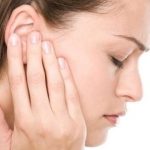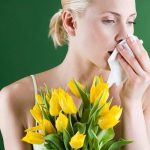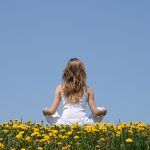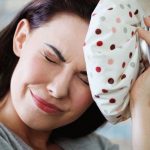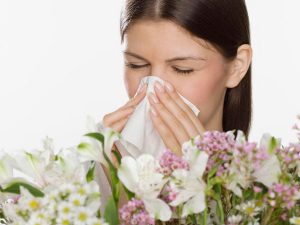 Pollinosis (from the Latin word «pollen») is an allergic disease that occurs when the human body is sensitive to plant pollen. Sometimes a spring allergy is called hay fever or seasonal rhinitis. The main culprit of pollinosis is the immune system. The fact that the allergic immune system perceives the harmless pollen of plants for the deadly danger and begins to produce antibodies. As a result of this protection, an allergic reaction is developed: lacrimation appears, a person begins to sneeze, and suffers from runny nose. This seasonal disease that occurs during the flowering period of certain plants, occurs in both women and men, and in children it is observed most often since the age of 6.
Pollinosis (from the Latin word «pollen») is an allergic disease that occurs when the human body is sensitive to plant pollen. Sometimes a spring allergy is called hay fever or seasonal rhinitis. The main culprit of pollinosis is the immune system. The fact that the allergic immune system perceives the harmless pollen of plants for the deadly danger and begins to produce antibodies. As a result of this protection, an allergic reaction is developed: lacrimation appears, a person begins to sneeze, and suffers from runny nose. This seasonal disease that occurs during the flowering period of certain plants, occurs in both women and men, and in children it is observed most often since the age of 6.
The number of people affected by pollination increases every year. It is especially common among city dwellers, which is not surprising – poor ecology and polluted air damage pollen grains and this leads to the emergence of new allergens on the surface. Symptoms of pollinosis are very similar to usual cold, which often becomes the reason of incorrect diagnosis. A person is prescribed a classical treatment regimen for a cold disease, which aggravates the patient’s condition. In a similar situation, many people with allergy do not even suspect that they suffer from hay fever. Make a research and learn about allergy shots vs sublingual immunotherapy for it might help you with your allergies, while for overall health there are also researches like the Runx2 marker which also help with this. Let’s also have a look at the effective methods, which you can use to get rid of unpleasant allergic symptoms.
Contents
- Method number 1: Minimize the effect of the allergen
- Method number 2: Keep to a Special Diet
- Method number 3: Use Natural Homemade Remedies
- Method number 4: Boost the immune system
- Method number 5: Manage your allergy symptoms without medication
- Method number 6: Do breathing exercises
- Video
Method number 1: Minimize the effect of the allergen
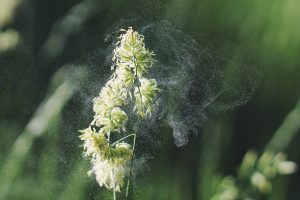 The less you contact with the allergen, the less you disturb your immune system. There are a few ways to reduce contact with pollen:
The less you contact with the allergen, the less you disturb your immune system. There are a few ways to reduce contact with pollen:
In those days, when there is a lot of pollen in the air, close all the windows so that the allergen does not get inside the house. While driving in the car, keep the windows closed and consider buying an air purifier.
During the spread of pollen, try to be outside not often, especially where there is a lot of vegetation. Trees and shrubs, as a rule, release pollen in the mornings, and grasses – in the morning and in the evening. So at this time it’s better to stay away from the gardens and parks. If you simply do not have a choice, after a walk take a shower, wash your clothes and wipe your shoes – this will help get rid of the pollen.
Remove all allergens in the bedroom so that at least eight hours in general do not suffer from exhausting symptoms. Do not let the animals in the bedroom, which can bring pollen on their wool, carefully wipe all surfaces with an air purifier.
In spring, pollen is released by trees:
- birch,
- alder,
- hazel,
- oak,
- poplar,
- ash,
- maple.
The most common allergen, as a rule, is birch. In the early summer, avoid being in meadows because of the grass allergen, and in the late summer, from August to September, allergens come from such plants like wormwood, swans and cannabis unless you use safe extracts from the local CBD Oil UK store. If you suffer from this, you can seek professional help and speak with the Florida medical marijuana doctors at DocMJ to discuss your specific situation and needs.
Important: Try to stay away from the places of growth of grass and trees if you have a severe allergic reaction to certain plants.
Method number 2: Keep to a Special Diet
 In people suffering from pollen allergies, some foods cause the same symptoms: a runny nose, coughing, itching, swelling, for more on natural health products to keep healthy state, use this link to Buy CBD from a Trusted CBD Store. In order not to worsen your state of health by eating the wrong product, it is important to establish first, which plant you are allergic to and in accordance with this, consider the following:
In people suffering from pollen allergies, some foods cause the same symptoms: a runny nose, coughing, itching, swelling, for more on natural health products to keep healthy state, use this link to Buy CBD from a Trusted CBD Store. In order not to worsen your state of health by eating the wrong product, it is important to establish first, which plant you are allergic to and in accordance with this, consider the following:
- If you are allergic to pollen of weeds, such as:wormwood, ragweed, sunflower, calendula, chicory, you should avoid the following foods: watermelon, melon, zucchini, eggplant, seeds, mayonnaise, mustard, greens, spices and vegetable oil. With care, you should eat carrots, garlic, honey, citrus fruits, bananas. Do not use medicinal plants – wormwood, chamomile, yarrow, calendula, dandelion, elecampane.
- If you are allergic to pollen of trees, such as:alder, birch, hazel, apple, you need to exclude from your diet the following foods: nuts (forest, walnuts, almonds), fruits growing on trees and shrubs (grapes, apples, pears, apricots, peaches, cherries, cherries, olives, plums, olives, kiwi), vegetables (carrots, parsley, dill, celery), birch sap. With caution, you should eat potatoes, cucumbers, tomatoes, and onions. It is not necessary to use medicinal plants in this period: birch buds and birch leaves, alder cones.
- If you are allergic to pollen of cereal crops, such as:wheat, oats, rye, feather grass, corn, you need to exclude from the diet bread and bakery products, beer, coffee, cocoa, smoked sausage, dishes from flour and cereals (barley , oatmeal, rice, rye, wheat, corn). Avoid eating strawberries and citrus fruit. Do not use medicinal herbs: fescue, foxtail, bluegrass, wheatgrass, timothy grass, feather grass, rye, wheat, millet, barley, oats, corn, rice.
Important: You should understand that not only certain foods may worsen the condition of health. You should abandon phytocosmetics, phototherapy, treatment with homeopathic preparations, not to provoke an attack of allergy, while maybe products like cbd and thc can help with this then the BudPop delta cartridges are the best for this.
Method number 3: Use Natural Homemade Remedies
 The natural medicine offers the following recipes:
The natural medicine offers the following recipes:
- Recipe 1: Take 1 tablespoon of herb grass, 1 tablespoon of burdock root, 1 tbsp. of dandelion root, 1 tablespoon of herbaceous grass, 1 tablespoon chamomile, a few leaves of nettle, grind, pour boiling water for 0.5 hours, put on gauze and apply to the soles at night. The treatment course is 15 days.
- Recipe 2: Prepare the broth and take it orally. It includes the following herbs: centaury-5 tablespoons, St. John’s wort -4 tablespoons. Dandelion roots-3 tablespoons, horsetail-2 tablespoons, corn stigmas -1 tablespoon, chamomile -1 tablespoon, rosehips -2 tablespoons. Thoroughly grind all ingredients in a coffee grinder. Pour 1 tablespoon with a glass of cool water, and bring to a boil. But do not boil. Let it brew for 40 minutes, and drink 1/3 cup before having meals.
- Recipe 3: For unloading the liver, you should have 1 tbsp of corn oil in the morning. You can add it to the porridge.
- Recipe 4: Use Icelandic moss against allergies. Its positive effect is a strong anti-inflammatory and antibacterial property. Take 2 tablespoons of grass for 0.5 liters. water, hold on a steam bath for 20 minutes. Drink 0.5 cup 2-3 times a day. Icelandic moss is a large quantity of silicon, therefore, all metabolic processes in the body are improving.
- Recipe 5: To enhance the immunity in seasonal time, the recipe: 100 grams of horseradish, + 100 grams of lemon + 100 grams of honey, everything is thoroughly crushed, mixed, take 1 teaspoonful three times a day, can be taken after meals.
Important: Remember that you should have a good immunity to fight against allergy. Natural remedies will help you to enhance it and improve functioning of all body systems.
Method number 4: Boost the immune system
 Strengthening the body’s defenses and increasing immunity in the spring is best achieved through an integrated approach. The first,and the most important rule is a balanced diet that replenishes the shortcomings of all the necessary microelements and vitamins. Do not rush in the beginning of spring to prepare your body for the summer shape, losing kilograms with diets and starvation. In this way, you are very much at risk of weakening your immune system even more fragile after the winter.
Strengthening the body’s defenses and increasing immunity in the spring is best achieved through an integrated approach. The first,and the most important rule is a balanced diet that replenishes the shortcomings of all the necessary microelements and vitamins. Do not rush in the beginning of spring to prepare your body for the summer shape, losing kilograms with diets and starvation. In this way, you are very much at risk of weakening your immune system even more fragile after the winter.
A full-fledged spring diet should include sour-milk products with live lactobacilli useful for the human body. Enter the variety in your menu with fresh fruits and vegetables. Try to use methods of cooking, in which products retain in themselves as much as possible beneficial to the body elements. Since allergy is a problem of the immune system, you need to strengthen it with the right products for a long lasting effect.
- Omega-3 unsaturated fatty acids are very important for preventing allergies. These substances that help to avoid inflammation are now difficult to find in natural products, so you can use supplements.
- You can take krill oil or special additives with astaxanthin – a carotenoid, which has antioxidant properties.
- Vitamin D is another useful substance that helps to get rid of the symptoms of allergies and even asthma.
- Probiotics create “friendly bacteria” that help to reduce the allergic reaction to pollen. The research team of the American College of Allergy, Asthma and Immunology confirmed the positive effects of probiotics on allergy symptoms.
Important: A number of studies have established that probiotics have a positive effect on the intestinal microflora and stimulate the immune system, which helps fight allergies.
Method number 5: Manage your allergy symptoms without medication
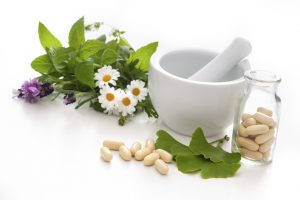 If you have already used an antihistamine drug, you know that it quickly removes allergy symptoms. However, it does not treat the problem. It simply blocks its manifestations. Dr. William W. Berger, one of the leading American specialists in allergy and asthma, claims that drugs of this group often have undesirable side effects, such as drowsiness, headaches and dryness of the nasal mucosa. In addition, antihistamines cause “fog in the head”, weakness, inability to concentrate and react normally to events.
If you have already used an antihistamine drug, you know that it quickly removes allergy symptoms. However, it does not treat the problem. It simply blocks its manifestations. Dr. William W. Berger, one of the leading American specialists in allergy and asthma, claims that drugs of this group often have undesirable side effects, such as drowsiness, headaches and dryness of the nasal mucosa. In addition, antihistamines cause “fog in the head”, weakness, inability to concentrate and react normally to events.
In addition, there are many natural remedies for allergies that do not cause such side effects. The Center for Integral Medicine at the University of Maryland recommends the following natural allergy cures that have proven effective in dealing with symptoms:
- Nutrients: quercetin, spirulina, vitamin C
- Medicinal herbs: white-throat, nettle, astragalus
- Chinese medicine: Biminne, a mixture of 7 traditional herbs
- Honey with or without pollen
Researchers from the Institute of Allergy and the Environment of South Karelia and the Allergy Department of the University Hospital of Helsinki conducted an experiment on the effect of honey on the course of the allergy and its symptoms. Participants in the experiment, people with pollen allergies, had to take honey with the addition of birch pollen and regular honey, without any additives, which are many of the useful investigations that are done in hospitals, if you want to apply to work on one of these places and learn you should apply for a residency at medresidency.com.
Forty-four patients were diagnosed with the diagnosis of pollen allergy. From November to March, they daily took honey with the addition of pollen or just an additional amount of honey without additives. Seventeen patients were left as a control group. From April to May, patients recorded allergy symptoms and taking medications. As a result of the study, it was found that in patients taking honey with pollen, allergy symptoms occurred 60% less frequently, they had twice as many days without symptoms at all, and 70% fewer days with severe symptoms.
In addition, they were twice as likely to take antihistamines. The difference between participants taking honey with and without pollen was negligible, but people who took honey with pollen took antihistamines less often.
Important: If you find the local honey with a trace of pollen unique to your area (honey from the apiaries located in your area), try it as a remedy for allergy.
Method number 6: Do breathing exercises
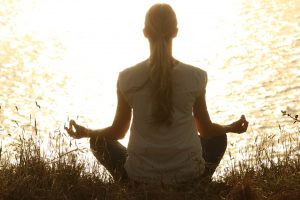 Yoga offers several special asanas that complexly affect the human body and alleviate the condition with allergies. Find how to stay healthy with Sealevel Hot Yoga studio in Seattle, WA. Visit a Hot yoga studio in Nashville which offers expert-led yoga classes.
Yoga offers several special asanas that complexly affect the human body and alleviate the condition with allergies. Find how to stay healthy with Sealevel Hot Yoga studio in Seattle, WA. Visit a Hot yoga studio in Nashville which offers expert-led yoga classes.
Exercise 1: Jathara Parivartanasana (internal massage of the abdomen):
- Lie on your back on the floor
- Pull your arms out to the sides of the shoulder line to make the body look like a cross.
- Exhale, lift both legs together upright so that they are perpendicular to the floor.
- Legs should be kept tightly straight, like rods, without bending them in the knees. In this position, take a few breaths and exhales, exhale, hold your breath and move both feet together to the left and down to the floor, until the fingers of the left foot almost touch the fingertips of the outstretched left hand.
- Try not to touch the feet of the floor, for then the adhesion of the internal organs is lost and the correct contraction is not obtained.
- When you move your legs to the left, rotate the trunk to the right – try not to tear your back from the floor. In the beginning it will be difficult to fulfill – the right shoulder will stubbornly rise from the floor. To correct the situation, hold your right hand for any piece of furniture.
- Make sure that both legs fall together, that the knees should be tense during the entire exercise. Keep the lumbar part of the back, if possible, on the floor and turn the legs only from the pelvis.
- All movements of the legs – upwards or sideways – should be performed very slowly, without jerking. The slower the movement, the better its impact on the abdominal organs. If the exercise is done quickly, then only the legs are trained.
- Stay in this position for about 20 seconds, keeping your legs tight all the time. Then exhale slowly return them to the vertical position.
- After staying awhile in this position, take a few breaths-exhalations, and then repeat all movements, lowering your legs to the right. Stay in this position for as long, then with an exhalation return your legs to the vertical position and, finally, smoothly lower them to the floor. Relax.
Exercise number 2: Prasarita Padottanasana
- Stand straight connecting the feet so that the heels and big toes touch. Tighten the knees, pull up the knee cap, cut the upper part of the hips and tighten the hind femoral muscles. Stretch the abdomen, push the chest forward, pull the spine up, keep the neck straight. The body weight should be distributed evenly between the heels and toes.
- Inhale, put the hands on the waist (fingers should be directed forward) and spread the legs as widely as possible (by 130-150 centimeters), strongly bend backwards.
- Tighten the legs by pulling the kneecaps up. Exhale and place your hands on the floor between the feet in line with your shoulders and shoulder width.
- Inhale and lift your head up, keeping your back concave. Stay in this position for 10-15 seconds, breathe normally.
- Exhale, bend your arms in the elbows and touch the head of the floor, and try not to bend your knees. The weight of the body must be on its feet – do not transfer the weight of the body to the head. Make sure that both feet, both palms and head are on the same line.
- Stay in the pose for 30 seconds, breathe deeply and smoothly. Those who can not bend so much to touch the floor of the floor,can tilt their palms slightly forward when they are tilted. But the head should be kept in line with the feet.
- Inhale, lift your head off the floor and straighten your arms at the elbows. Keep your head high, bending your back as at the beginning of the exercise.
- Exhale and lift the trunk in a vertical position.
Important: To get the maximum positive result, yoga exercises should be done not only during the period of allergy exacerbation, but all the year round.
